多地现本土疫情,假期出行还能安排上吗?
多地现本土疫情,假期出行还能安排上吗?
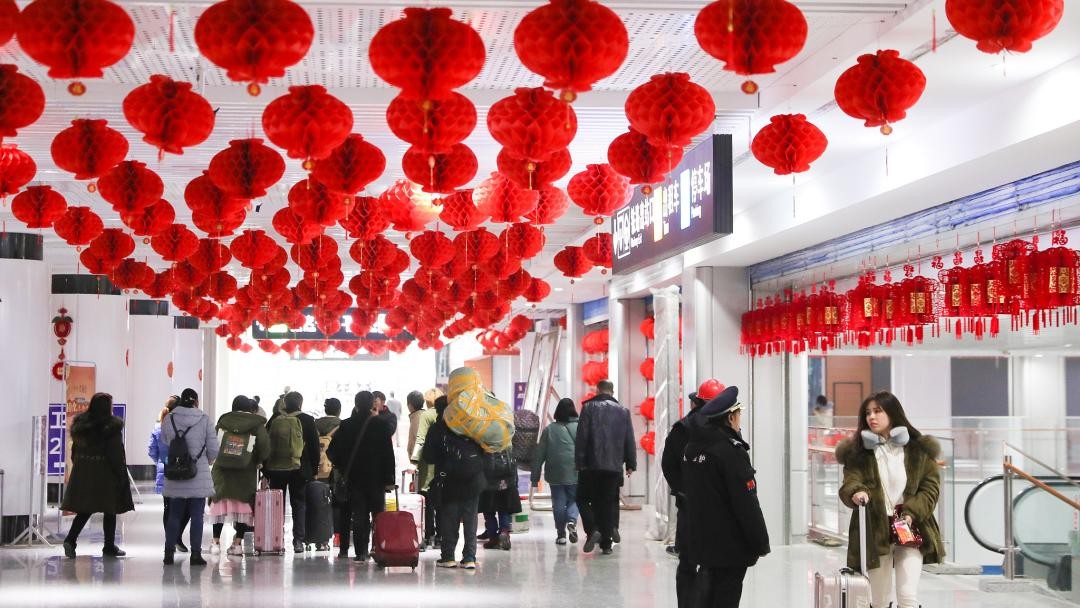
进入冬季后,全国大部分地区气温持续走低,与此同时,国内多地出现零星的新冠肺炎疫情。
在不到半个月的时间里,四川成都、黑龙江东宁、绥芬河等地先后出现了本土确诊病例和无症状感染者,引发社会关注。
随着元旦、春节临近,人流、物流也将相应增加。人们不禁担心:假期能安心出行吗?
After entering the winter season, with the weather becoming colder, sporadic coronavirus cases have erupted from time to time across China, especially in chilly cities.
In less than half a month, six cities including the southwestern city of Chengdu, and the northeastern cities of Suifenhe, Dongning and Manchuria have successively reported domestic COVID-19 cases, many of which have been asymptomatic.
With the Chinese Lunar New Year Spring Festival around the corner, it's estimated that 3 billion trips will be made during the travel rush as people head home to celebrate the winter break with family and friends. With such huge human migration and daunting transportation logistics, is it safe to travel amid the epidemic?
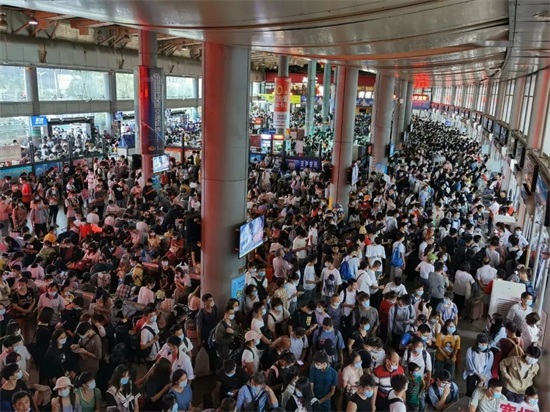
今年国庆中秋长假期间也曾有到过大规模的人员流动。文化和旅游部数据显示,8天假期期间,全国共接待国内游客6.37亿人次,几乎没有新增确诊病例。专家表示,事实证明,只要防控措施得当,风险是完全可以控制的。
但专家强调,春节的情况有所不同。一方面,春运期间的人口流动规模要比国庆长假大得多,另一方面,冬季气温越低病毒存活时间越长,再加上民众过节会走亲访友,较大规模的室内聚集也都会增加新冠疫情传播的风险,所以春节期间疫情风险肯定会增大。
During the National Day holiday, which took place October 1-8, over 630 million trips had been made across China with few infections reported, which experts say is proof that the pandemic can be contained with proper control measures.
However, they also warned that the coming festival may pose more severe challenges. Experts explained that compared with the National Day holiday, the Spring Festival usually sees about four times more travelers. More large gatherings are also expected as people tend to visit relatives and friends during the winter break. Besides, due to the cold weather, people will be forced to move indoors where airborne transmission thrives. All these factors will intensify the challenge to contain the virus, experts say.
国家卫健委高级别专家组成员、中国疾控中心流行病学前首席科学家曾光表示,虽然春节期间人员大量流动,但只要人群中没有感染者,就不会发生传播范围较广的重大疫情。从这个角度上讲,春节期间大家回家过年是没问题的。但今年过春节肯定还是不鼓励互相串门,或大规模的室内聚集。
曾光建议民众在春节返乡过程中做好个人防护,包括乘坐公共交通时全程佩戴好口罩、勤洗手等。
此外,冬季也是流感和肺炎的高发期,曾光建议可先接种流感疫苗、肺炎球菌疫苗等。因为一旦感染了流感或肺炎,身体抵抗力就会下降,也不利于对新冠肺炎的抵抗。
而对于65岁以上且患有基础慢性病的老龄人群,曾光不建议春节期间长途劳累奔波。因为这个人群一旦感染新冠病毒,救治难度会更大。
中国疾控中心流行病学首席专家吴尊友日前在接受媒体采访时也提醒公众,曾经发生过疫情的地方,在冬季再次发生疫情的概率比其他地方大。但这并不意味着其他地方不会发生疫情,所有涉及到境外人、物进入的地方,都有可能发生疫情。
他强调,入冬以后,境外绝大多数国家出现了新冠肺炎疫情的大幅度上升,感染的人数和污染的物品在增加。对于国内防输入,防人、防物两个方面,都增加了压力。在这样的全球背景下,中国出现多点零星散发病例,属于常态化防控当中的一个正常现象。
Zeng Guang, former chief scientist of epidemiology at the Chinese Center for Disease Control and Prevention (China CDC) said that it's fine for people to go home, but advised that they'd better postpone or cancel unnecessary gatherings and all indoor gatherings should take place outside whenever possible, with all participants wearing masks and maintaining enough of a social distance.
He reminded the public that when they return home by plane, train or bus, they should wear face masks and wash their hands from time to time. If they catch a fever, they should report it voluntarily in due time.
Other experts suggested that while they wait for a COVID-19 vaccine to be made available, people should get an influenza vaccine and a pneumococcal vaccine as winter is the peak season for influenza and pneumonia, which can damage people's immune system and aggravate the symptoms of COVID-19 if one gets infected.
Experts strongly suggested that seniors that over 65 years old should avoid traveling, because once they're infected, it will be really hard to recover.
Wu Zunyou, chief epidemiologist at the China CDC warned that even though the virus is currently under control, people should not let their guard down, especially during the winter. All the places that may be exposed to imported goods or people arriving from overseas may cause a resurgence in infections.
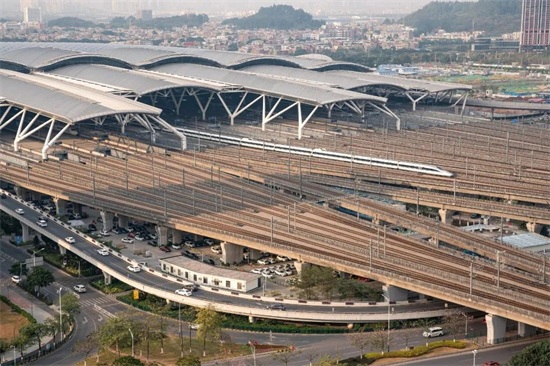
事实上,为了应对假期的疫情传播风险,国家卫健委已严阵以待,铁路和民航等部门也都采取了严格措施。
近期,国家卫健委对全国冬季疫情防控工作进行了再动员、再部署,组建了国家防控专家队,开展了在线培训和实战演练,目前全国累计有295万人参加了培训。
另外,国家卫健委近日还印发了《关于加强基层医疗卫生机构发热诊室设置的通知》,明确要求在有条件的乡镇卫生院和社区卫生服务中心设置发热诊室。发热诊室应当严格实行首诊负责制,不得拒诊、拒收发热患者。所有到发热诊室就诊的患者,必须登记有效身份信息或扫“健康码”。
此外,依照要求,基层医疗机构需对全部发热患者进行核酸检测和血常规检查,不具备检测能力的,需通过与其他医疗机构或第三方检测机构合作的方式为发热患者提供检测服务。
In order to prepare for the world's biggest human migration, the National Health Commission, China Railway and the Civil Aviation Administration have doubled their efforts to cope with the upcoming travel rush.
So far, the National Health Commission has established a leading expert team for COVID-19 prevention and control, which has trained over 2.95 million officials and medics in 32 provincial-level regions.
The commission has also ordered township-level hospitals and community health service centers to set up fever clinics, which are prohibited from rejecting patients with fever. It also called for ID information of all febrile patients to be registered so that they can be quickly traced if they're diagnosed with COVID-19.
Furthermore, primary-level medical institutions are required to conduct nucleic acid tests and routine blood tests on all fever patients. Those who are not capable of testing shall provide the service by cooperating with third-party testing institutions.
为防止新冠病毒通过冷链食品传输,铁路和民航部门均加强了“人物同防”措施,包括加强从业人员健康筛查和个体防护、对运输车辆进行消杀、严格执行信息登记制度等。
交通部督促冷链物流企业、港口企业等单位如实登记进口冷链物流相关信息,不得运输、装卸不明来源的冷链物流货物。
For railway and aviation transportation, since the coronavirus has been previously found in cold chain foods, both have strengthened employee protection, the disinfection of transportation vehicles and information registration in cold chain logistics.
China's Ministry of Transport requires cold chain logistics firms to strictly check customs declaration documents and inspection and quarantine certificates for imported cold chain foods, and prohibits these companies from transporting imported cold chain foods without a clear source of purchase.
-

- 广西“上林帮”非洲淘金记:为钱殊死搏斗,常备200克金子保命
-
2025-06-22 09:56:14
-

- 阿斯茹:嫁给瘫痪的谷智鑫,婚后连生二胎,如今一家四口其乐融融
-
2025-06-22 09:53:59
-

- 老戏骨范明:娶大6岁的二婚妻子,继子是他的骄傲也是国家的骄傲
-
2025-06-22 09:51:44
-

- 18岁出道就封神,国民闺女郑爽,毁掉自己后她如今怎么样了?
-
2025-06-22 09:49:29
-

- 刘德华从影40年18次入围“三金”影帝,他都赢了谁输了谁?
-
2025-06-22 09:47:13
-
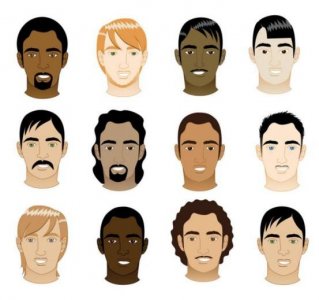
- 发现了12万年前的足印,人类起源方式确定?我们其实来自非洲
-
2025-06-22 09:44:58
-

- 郑爽在美国目前成功怀孕?金主身份遭曝光,让人太意外
-
2025-06-22 09:42:43
-

- 陈维聪:26岁红遍广东,与妻子姚珊相爱31岁,59岁的他成为陈叔
-
2025-06-22 09:40:28
-

- 王姬:当年我拍吻戏,都提前先去医院检查一下
-
2025-06-22 09:38:13
-

- 他曾是烟台青岛市委书记 竟被两个女人迷倒拉下水
-
2025-06-22 09:35:58
-

- 程愫:花21年捧红傅程鹏,丈夫走红就离婚,5年后2人境遇天差地别
-
2025-06-22 09:33:43
-

- 迪拜王子哈曼丹:迪拜万亿帝国的继承人,他的生活有多奢侈?
-
2025-06-22 09:31:28
-

- 扒一扒喜茶等头部新茶饮品牌老板的前传,学历最高的是?
-
2025-06-22 09:29:12
-

- 程琳37岁近况:曾是非主流女神的网红鼻祖现状
-
2025-06-22 09:26:57
-
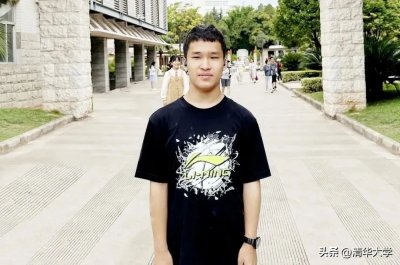
- 励志!脑瘫男孩697分考入清华!
-
2025-06-21 16:43:33
-

- 细说3大仿石漆——真石漆、水包砂、水包水
-
2025-06-21 16:41:18
-
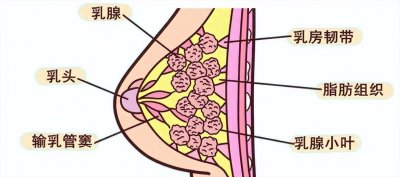
- 性生活时,女生的胸不能随便亲吻?为了伴侣健康,不要轻易触碰!
-
2025-06-21 16:39:03
-
- 沪指午后重回4100点 创业板指重挫6%
-
2025-06-21 16:36:48
-

- 日照8大特色美食,鲜得你舌头都要掉下来,没吃过就亏大了!
-
2025-06-21 16:34:33
-
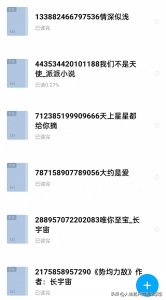
- 强推12本高质量高干言情小说‖长宇宙的《势均力敌》过目难忘
-
2025-06-21 16:32:17



 许凯妈妈旧照,看到他妈妈年轻时的样子,才知道他为啥这么帅气
许凯妈妈旧照,看到他妈妈年轻时的样子,才知道他为啥这么帅气 丰田推出的倒三轮摩托车,只要1万多,可惜国内没有卖的
丰田推出的倒三轮摩托车,只要1万多,可惜国内没有卖的